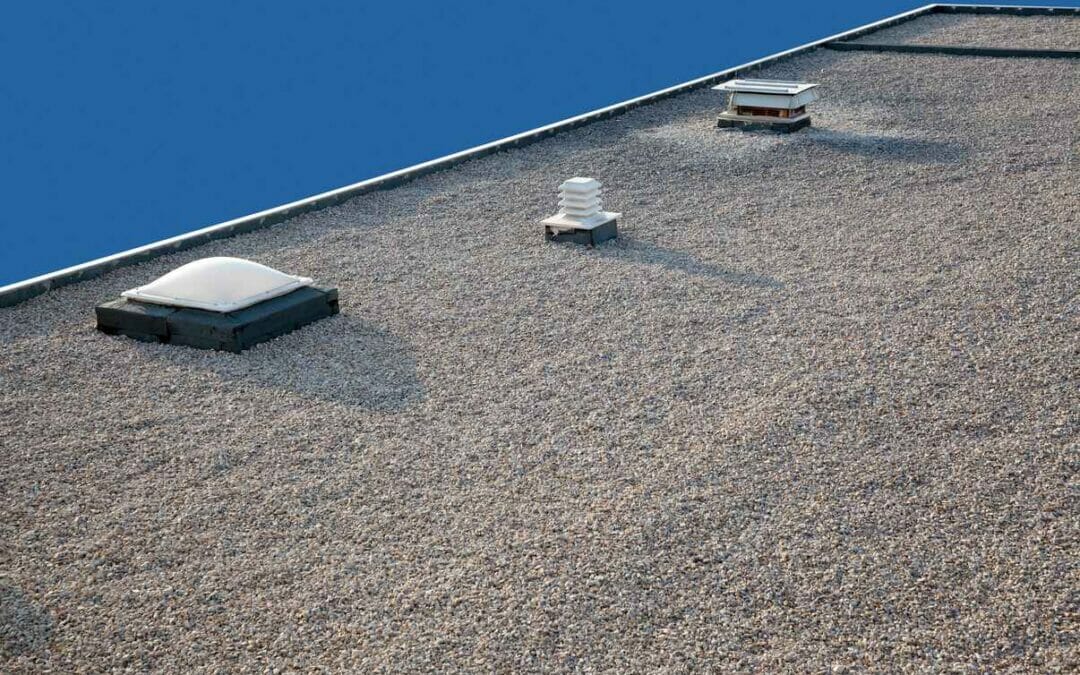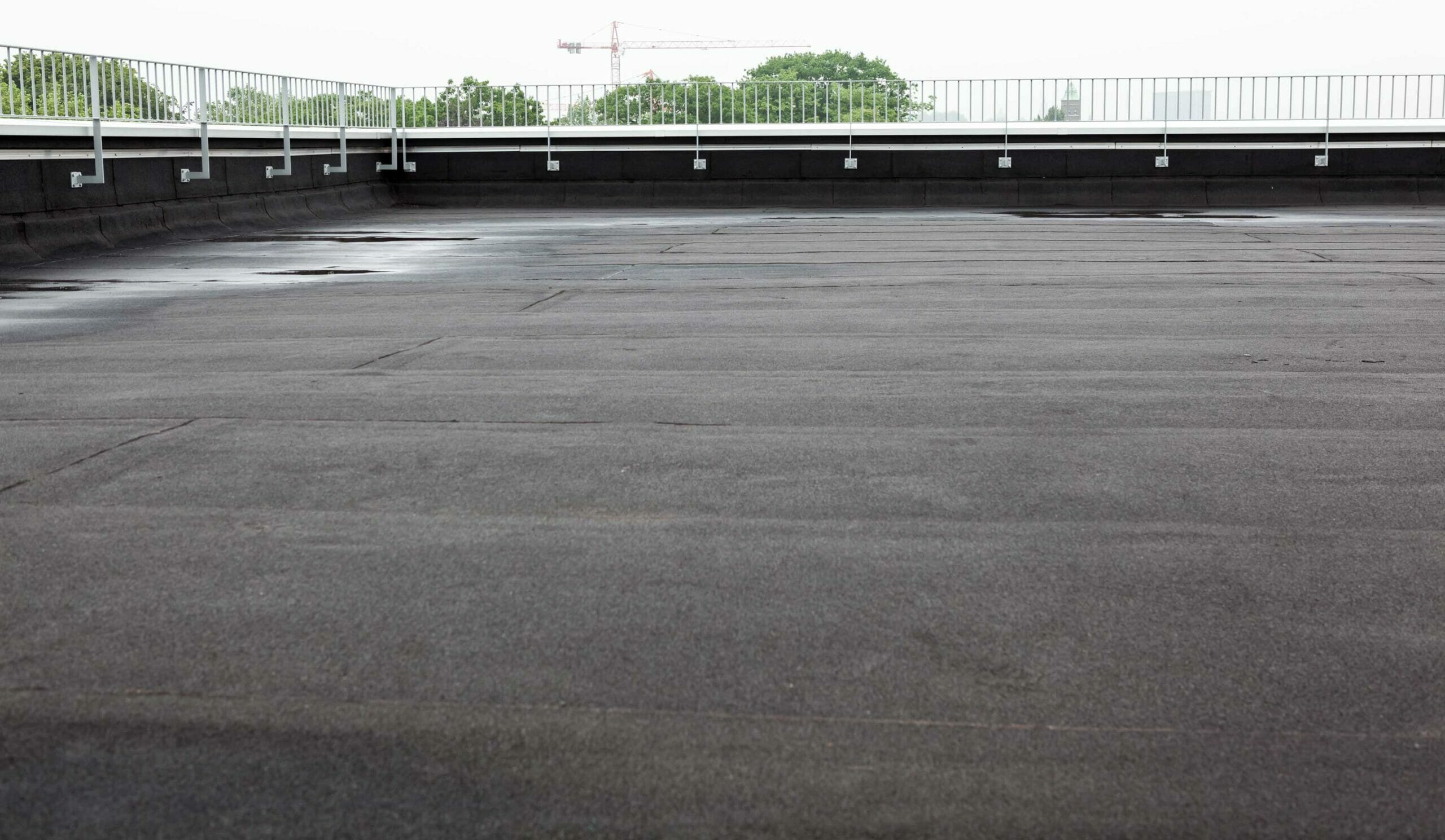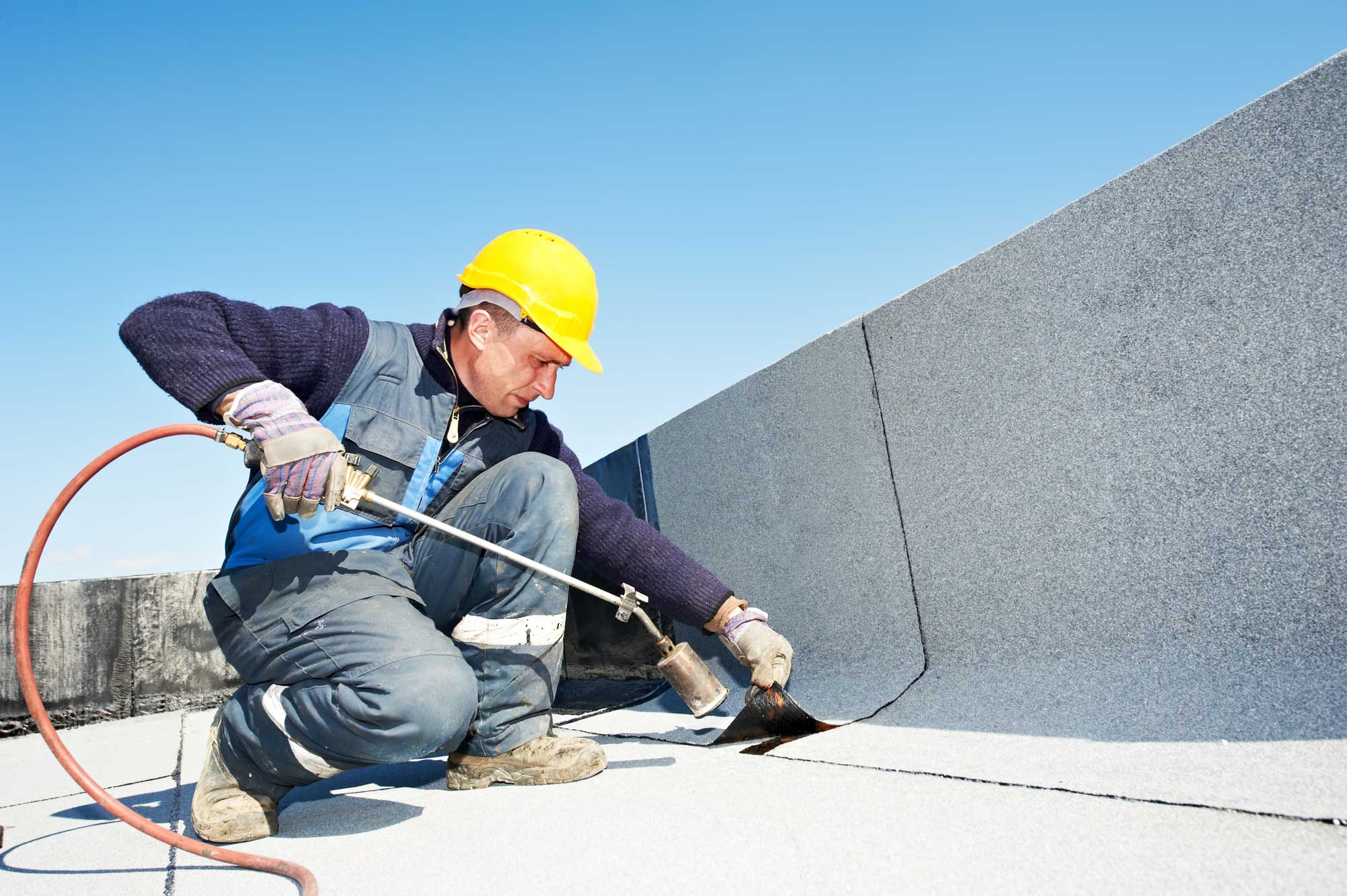When it comes to the roofing of your Denver commercial property, there are many options to consider for your roofing material. But how can you tell which one is the best for your situation? To help you make an informed decision, let’s discuss the main types of single-ply membrane roofing.
EPDM
EPDM, known as “rubber roof” or ethylene propylene diene monomer, is manufactured in large sheets or rolls and is quick and easy to install, on top of being one of the most inexpensive roofing materials around. EPDM roofing membrane is very lightweight, so the roof deck will not need any reinforcement.
Pros
EPDM generally comes in at the lowest price per square foot for flat or low-sloped roofs. Generally, it is long-lasting with a lifespan of over 20 years. And if purchased in white, since it is easily paired with polyiso insulation, it can be a very energy-efficient roof choice.
Cons
Ballasted EPDM systems are relatively inexpensive when compared to others, however fully adhered or mechanical systems are slightly more expensive than TPO. In the wrong environment and toward the end of its life, EPDM can start to become fragile.
TPO
TPO, Thermoplastic Polyolefin, is made up of a single layer of synthetics, usually a blend of polypropylene and ethylene-propylene rubber. Its primary advantage is that it’s typically the lowest material cost for single-ply membrane roofs. It typically comes in white on top, which can help reflect the sun’s light and stop heat buildup within the building.
Pros
TPO provides outstanding resistance to ozone, ultraviolet rays, and some chemical exposure at a low cost. It reflects heat radiation better than EPDM and resists mold growth, dirt accumulation, tear impacts, and punctures.
Cons
Heat welding the seams requires a very high-quality installation to hold up over time. Some formulations of TPO may not last much past the 10-year mark, and newer technology makes for a lack of a proven track record.
PVC
PVC, polyvinyl chloride, is made from a lower percentage of oil and petroleum than TPO or EPDM. Energy-efficient and surprisingly strong, it can be installed by heat welding the seams, as opposed to adhesive or utilizing a taped seam. This installation method allows a PVC roof to expand and contract with a building. PVC can also be sealed with solvent welding and attached to metal flashing and other components with adhesives.
Pros
PVC is highly efficient with heating and cooling, reflects the sun and mitigates the heat island effect in cities, and is recyclable, even after over twenty years of service life. Some commercial buildings will have significant amounts of exposure to chemicals. PVC roofs also do not support combustion, burn slowly, are difficult to ignite, and even extinguish the fire if the source is removed.
Cons
These features all come at a cost that is typically higher per square foot cost than both EPDM and TPO. PVC typically doesn’t perform as well in cold climates, becoming brittle and cracking or shattering if walked on. In addition, the cost to reroof is much greater as it can be very labor-intensive to remove the old roof.
Modified Bitumen
Modified bitumen is made up of polymer reinforced with at least one layer of fabric, either glass fiber, polyester, or both. Modified bitumen is designed to have the same thickness and physical attributes throughout the entire sheet. Finished roofing membranes can possess multiple bitumen sheets or have a combination of built-up roofing felts and at least one modified bitumen sheet.
Pros
Roof repairs are easier since they typically just involve adding another layer to the bitumen roofing. The combination of fiberglass and/or polyester reinforcement layers makes modified bitumen more tear-resistant than other roofing options. Modified bitumen is a flexible roofing material, meaning it withstands extreme temperature changes and offers great impact resistance.
Cons
Modified bitumen roofs have a tendency to become brittle and crack over time due to prolonged exposure to high temperatures. This can lead to leaks and water damage within the building. If not properly installed, they can be vulnerable to wind uplift, which can cause extensive damage during severe weather events.
Roof Coatings
Roof coating offers many benefits such as reduction of heat energy costs and increased UV and waterproofing protection of your roof. Your roof is prone to damages caused by heat and ultraviolet rays, so adding roof coating strengthens your roof and increases its longevity. It also adds to the charm and appearance of your house.
Pros
The coating adds to the roof and protects it from leaks, but it can also help prevent the roof from mold and mildew damage. The extra life could mean that you can wait years longer before replacing the roof and potentially prevent roofing material from winding up in the landfill. A right roof coating protects the roof from sun rays and UV damage because it reflects the heat from the roof’s surface.
Cons
Some roof coatings emit a strong, xylene-based odor. While this odorous vapor is not harmful, it can be quite unpleasant for a building’s occupants. For buildings that have a fresh air intake HVAC system, we recommended it be set to recirculate air from within the building, or turned off completely during the installation process.
At Pro Integrity Roofing, we have years of experience in commercial flat roofing that will ensure you the job is done as intended the first time. If you’re ready to see what your roofing solutions in Denver can look like, schedule an estimate with us today.





